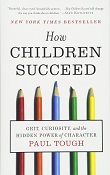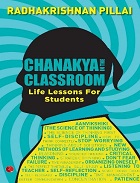Why Don’t Students Like School?
Why Don’t Students Like School?
 ‘Why Don’t Students Like School?’ is a cognitive scientist’s take on how the mind works and what it means for the classroom.
‘Why Don’t Students Like School?’ is a cognitive scientist’s take on how the mind works and what it means for the classroom. Written by Daniel T. Willingham, a psychologist and professor at the University of Virginia, the book is divided into nine chapters that offer scientific approaches to engage the students in the classroom.
Willingham takes findings from cognitive science and applies it to a classroom setting in a practical way. The book revolves around ideas like:
-
Students dislike school because they don’t enjoy thinking. They will begin enjoying only when they are rewarded with success.
-
A background knowledge is essential for the development of cognitive skills.
-
Students will only remember what they think about and hence, teachers will have to pay a closer attention to what an assignment will make the students think about.
-
Abstract thinking must be built upon a foundation of concrete thought.
-
Proficiency requires practice and cramming does not lead to long-term retention.
-
People mature and grow as thinkers. Learning can change the way a person thinks.
-
People are alike in terms of learning and thinking.
-
Intelligence can be changed through hard work.
-
Teaching is a cognitive skill that must be practised to be improved.
The book offers valuable strategies to improve student retention and suggests tips for teachers to develop their skills.





















